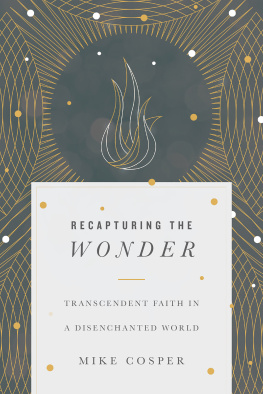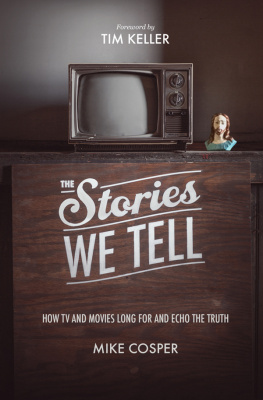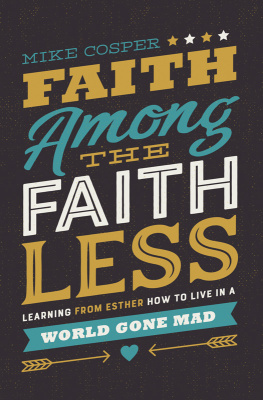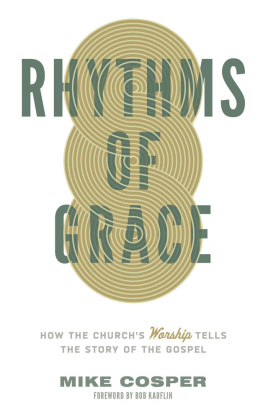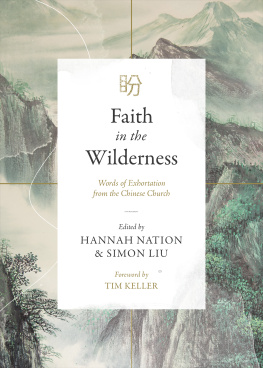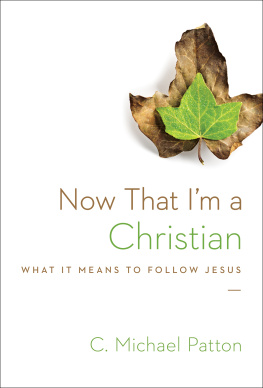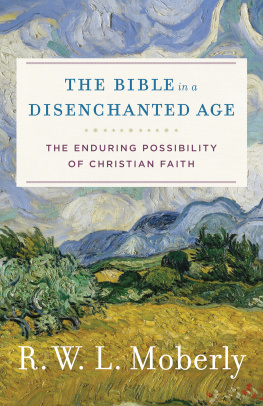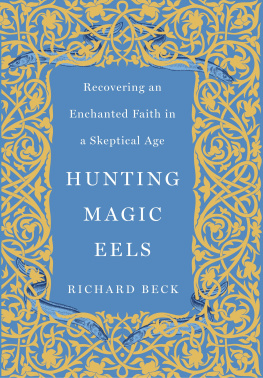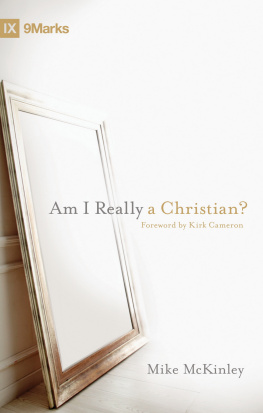RECAPTURING THE
WONDER

TRANSCENDENT FAITH IN
A DISENCHANTED WORLD
MIKE COSPER
InterVarsity Press
P.O. Box 1400, Downers Grove, IL 60515-1426
ivpress.com
2017 by Michael David Cosper
All rights reserved. No part of this book may be reproduced in any form without written permission from InterVarsity Press.
InterVarsity Press is the book-publishing division of InterVarsity Christian Fellowship/USA, a movement of students and faculty active on campus at hundreds of universities, colleges, and schools of nursing in the United States of America, and a member movement of the International Fellowship of Evangelical Students. For information about local and regional activities, visit intervarsity.org.
Scripture quotations, unless otherwise noted, are from The Holy Bible, English Standard Version, copyright 2001 by Crossway Bibles, a division of Good News Publishers. Used by permission. All rights reserved.
While any stories in this book are true, some names and identifying information may have been changed to protect the privacy of individuals.
Published in association with the literary agent Don Gates of The Gates Group, www.the-gates-group.com.
Cover design: David Fassett
Interior design: Jeanna Wiggins
Images: 472845096/iStockphoto
ISBN 978-0-8308-9076-7 (digital)
ISBN 978-0-8308-4506-4 (print)
Library of Congress Cataloging-in-Publication Data
Names: Cosper, Mike, 1980- author.
Title: Recapturing the wonder: transcendent faith in a disenchanted world / Mike Cosper.
Description: Downers Grove: InterVarsity Press, 2017. | Includes bibliographical references.
Identifiers: LCCN 2017022343 (print) | LCCN 2017019245 (ebook) | ISBN 9780830890767 (eBook) | ISBN 9780830845064 (pbk. : alk. paper)
Subjects: LCSH: Spiritual life--Christianity. | Christian life.
Classification: LCC BV4501.3 (print) | LCC BV4501.3 .C688 2017 (ebook) | DDC 248.4--dc23
LC record available at https://lccn.loc.gov/2017022343
This digital document has been produced by Nord Compo.
For Dorothy and Maggie:
Heres hoping this book helps you
make sense of this strange world.

For Mike Frazier and Rich Plass,
who helped make sense
of this world for me.
Introduction
W hen I was a kid, I had a semi-feral tomcat that was fond of leaving animal carcasses on our front step. He was huge and grey and had long, matted fur. Id be on my way to school and open the door to find him waiting, a bird or a squirrel or a small rabbitoften headless, by this timein his mouth or at his feet, a look of self-satisfied pride in his eyes.
One morning, I found him with the carcass of a raccoon not much smaller than he was. The cat didnt look much better than the raccoon. His ear was torn and bleeding, and patches of fur were missing from all over his body, which was punctuated by scratches and tooth marks. I vaguely remember him missing a tooth, too. But that same dark look of pride was in his eyes.
I imagined what led to that scene, something akin to a bar fight gone horribly wrong, leading him to come to his friend in the early dawn and ask for help burying the body. I got a shovel and we got rid of the raccoon together.
I feel like that cat looking over the pages of this manuscript. I set out to write a book about spiritual disciplinespractices like Scripture reading and prayer and fastingand found myself in the midst of a fight that, like the cat, I was unprepared for. I knew I wanted to account for what makes those habits so difficult to cultivate, so elusive. I didnt know how much Id have to reckon with a world that conditions us for doubt. Most of all, I didnt know how much Id have to reckon with my own doubts.
At the same time, the disciplines became more important to me than ever. In the two-and-a-half years that passed between writing a proposal for this book and actually finishing it, life has been chaotic. I witnessed the meltdown of several close friends marriages, the church where I served as a pastor went through several difficult transitions, and my family went through bouts of severe illness. Everything seemed to ratchet up the pressure, and at times, my only lifeline and grip on sanity was these disciplines. I write about them not as a master of the many methods and techniques that have been employed throughout church history but as someone who has found that they can be an anchor for faith, hope, and love in the midst of a life that feels like its crumbling.
But the disciplines didnt just provide the strength to endure the troubles that this world threw at me; they opened up the possibility of living in another world.

In Susanna Clarkes wonderful fairytale Jonathan Strange and Mr. Norrell, she tells a story about the rediscovery of magic in England in the nineteenth century. In the beginning of the tale, magic has vanished from England. It remains part of English folklore, like the story of King Arthur, but no one has actually practiced it in many years. Nonetheless, there were men who called themselves magicians. They did so in spite of the fact that not one of these magicians had ever cast the smallest spell, nor by magic caused one leaf to tremble upon a tree, made one mote of dust to alter its course or changed a single hair upon any ones head. But with this one minor reservation, they enjoyed a
These magicians spent their days in lengthy arguments about theoretical magic, debating the use of this spell over that, nitpicking the details of magics history in England, meeting once a month and reading long, dull papers to one another. The idea of actually practicing magic was vulgar.
Then Mr. Norrell showed up. He cast a spell that made all of the statues in Yorkshires cathedral come to life: shouting, singing, and telling stories about the deaths of the men and women whose images they bore. The magicians of Yorkshire were speechless. The world was far different than theyd believed.
I couldnt help but feel a certain sadness reading Jonathan Strange and Mr. Norrell. I found myself identifying with the magicians of Yorkshire. My life as a Christian had left me with a certain amount of fluency with faith: I could keep up in conversations about theology, the history of the Bible, the world of the first century, and the history of the church. I could talk a bit about apologetics and worldview. And I could talk a good bit about worship and liturgy in the church. But as I read Clarkes book, I couldnt help but feel the gap between knowing and know-how, between what I knew I could say about my faith and what I could do with it. At times, my faith felt like a boxed-in corner of my life, separate and distinct from the rest of it.
Strangely, this isnt because of a lack of events in my life that could be called miraculous. In fact, Ive seen more than a few things that I cant explain rationally, and Ive had spiritual experiences that felt no less than spectacular. But these, too, felt somehow boxed-in, an island I occasionally took a ferry to, rather than the mainland of my everyday experience. Even the little things that make up a Christian lifegoing to church, reading the Bible, and so onfelt tacked on and disconnected from the rest of my life. My ordinary life felt strangely irreligious.

